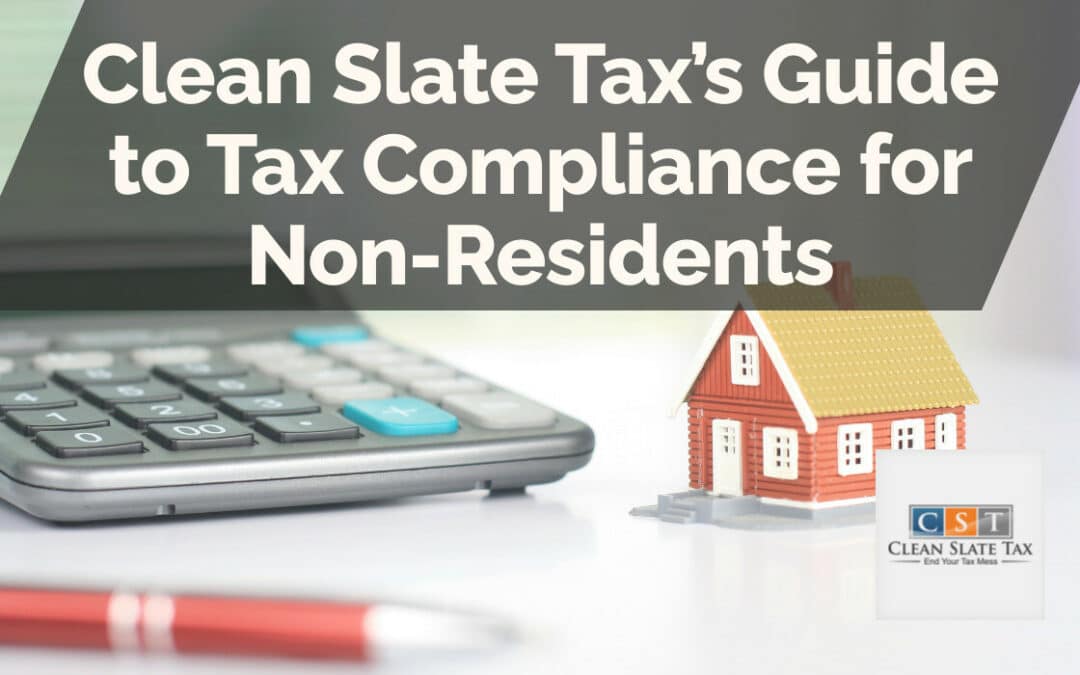Understanding tax compliance as a non-resident can be a big challenge. Regulations vary and it’s important to accurately satisfy your tax obligations to avoid penalties. This guide, presented by Clean Slate Tax, is designed to help non-residents navigate the complex world of tax compliance.
Understanding Non-Resident Tax Obligations
As a non-resident, you’re typically required to pay taxes on any income earned within a country. This includes income from employment, business activities, investments and the sale of properties. Understanding your obligations begins with defining your non-residential status and how it impacts your tax burden.
Identifying as a Non-Resident for Tax Purposes
In most jurisdictions, the distinction between a resident and a non-resident for tax purposes hinges on your “substantial presence” or the length of your stay in the country. Certain guidelines must be followed to qualify as a non-resident.
Understanding the Substantial Presence Test
The Substantial Presence Test is used by many countries to determine tax status. This involves a careful consideration of the number of days you have been present in the country.
Navigating Income and Withholding Taxes
As a non-resident, you may face different tax difficulties. Income earned within the country is generally taxable, and a specific withholding tax may be applied to some types of income.
Income Tax for Non-Residents
Your income tax requirements will be determined by the type and source of income you’ve earned during the tax year.
Withholding Tax for Non-Residents
In many situations, the payer of your income may be obliged to withhold tax at the source and forward it to the tax authorities on your behalf.
Preparing and Filing Your Tax Return
Filing a non-resident tax return involves several specific steps and distinct forms. It is important to report all income types earned within the country.
Frequently Asked Questions
What qualifies someone as a non-resident for tax purposes?
The determination often hinges on the “substantial presence” test and the number of days you stay in the country.
What income is taxable for non-residents?
Generally, all income earned within a country – from employment, business activities and investments – is taxable for non-residents.
This guide should help non-residents navigate their tax obligations more efficiently. However, remember that tax laws vary per country and change constantly. It is advisable to consult with a tax professional to ensure you’re fully compliant with the relevant regulations.





